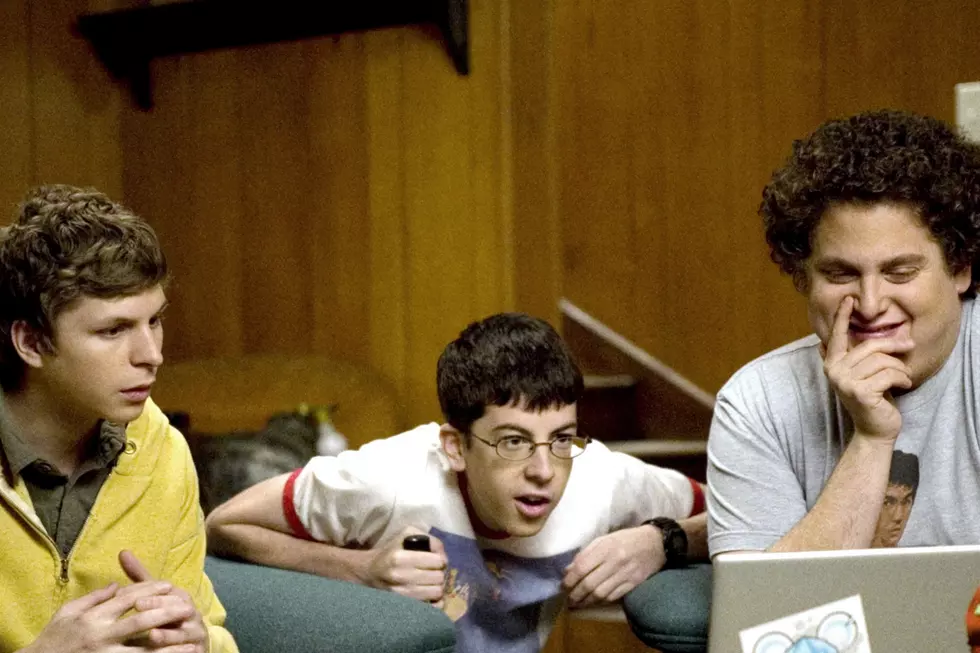
‘Trainwreck’ Review: Amy Schumer’s Movie Debut is Nearly Flawless
Amy Schumer has built a sizable fan base thanks to her Comedy Central series, which showcases her specific brand of honest and often subversive sense of humor. There’s no denying her intense relatability — and it’s that quality that serves her well in her debut film, Trainwreck. Written and produced by Schumer and directed by Judd Apatow, the film centers on a fictional version of Schumer. We’ll never know how fictional this Amy is (and we shouldn’t), which makes her cinematic alter ego all the more appealing.
We’ve seen plenty of movies about man-children and regressive women — Apatow himself is largely responsible for igniting a wave of films about men in arrested development, which makes his choice to direct Schumer’s feature debut a pleasant surprise. Apatow’s films have previously tended toward the male POV, and the director has often been accused of slighting the women in his movies. Trainwreck defies those criticisms as he collaborates with Schumer on a bracingly honest film with an incredibly dimensional and downright hilarious leading lady.
In the opening scene, Amy’s father lays out a ridiculous metaphor about dolls to explain to her and her sister that monogamy isn’t natural. While Amy’s sister Kim bucks this notion and goes on to marry a tragically normal man and start a family, Amy buys into her father’s idealism. She drinks, she smokes pot, she has a series of one-night stands, and her idea of dating is going to the movies with one of the men she sleeps with (a surprisingly funny John Cena). Amy is commitment-phobic, but it’s clear that her drinking and pot-smoking and sleeping around are a distraction from a problem to which she’s oblivious.
Unlike similar films about regressive women, Amy’s issues aren’t the result of some previous wrong committed against her that she needs to work through. Her relatability comes from both the normalcy and perceived irregularity of her behavior, as Trainwreck challenges us to consider why her actions are a problem. It’s not the how, it’s the why.
When the editor-in-chief of the male-oriented magazine for which Amy works assigns her to profile sports doctor Aaron Conners (Bill Hader), Amy finds herself more attracted to him than she’d like to admit, and reluctantly embarks on her first adult relationship. It’s through this relationship, as well as the ones with her sister and father, that we learn more about her than her hilarious series of hook-ups suggest. Few films are able to capture the fluidity of an argument with such precision — the way the narrative of a fight shifts as the attacked party flips the script on their blameless significant other in self-defense. It’s easy to empathize with Aaron and Amy, who stay up all night exhausting themselves with a needless argument. Like previous Apatow efforts, it’s both funny and a little sad.
Schumer has effortless chemistry with her co-stars, from the earnest and likable Hader to Tilda Swinton as Amy’s icy and willfully aloof boss. LeBron James genuinely gives a funny performance as a supporting character, while a later scene with an intern played by Ezra Miller is so insanely and horrifyingly relatable to any woman who’s ever had sex. Colin Quinn, who put in a few guest appearances on the Apatow-produced Girls, plays Amy’s father, whose illness confuses his daughter’s resolve to remain unburdened by the prospect of a relationship that will inevitably engender unhappiness. He’s a lovable jerk, like most dads, and while Amy’s relationship with Aaron propels the main narrative, the scenes with her father and sister (the always charming Brie Larson) are the poignant hinges around which this narrative revolves.
Apatow and Schumer’s collaboration is nearly flawless, hindered only by a fake film within a film that doesn’t quite hit the mark, as well as a final climactic scene that eagerly embraces familiar rom-com tropes. In the last 20 minutes, Trainwreck stops being a highly original and subversive comedy and becomes an actual movie. It would be more disappointing if the preceding hour and 30 minutes weren’t so damn great.
There’s plenty of Schumer’s signature sense of biting humor and wit to Trainwreck, but here she proves that she’s more than a series of observant sketches with a story that’s impossible not to find hilarious and moving. It’s familiar not because we’ve seen similar characters and ideas in other films, but because we’ve seen parts of Amy and her problems in our own lives. There’s a basic notion here about rejecting the things we really want because we don’t think we deserve them, or thinking that we’ll just screw it up — why try if you’ll only fail? If there is a lesson to be learned from Trainwreck, it’s that you can’t succeed if you never try. It’s one of those platitudes often touted in sports, charmingly and appropriately repurposed here.
More From ScreenCrush









